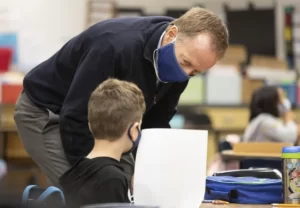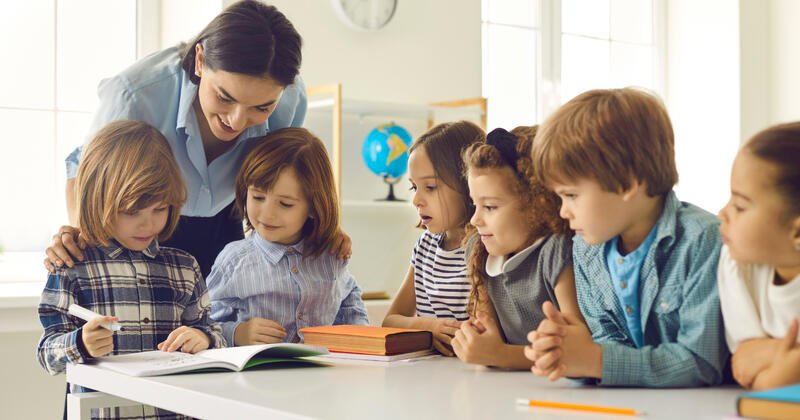Examining the many facets of education reveals a complicated picture made up of the various “Purposes of schooling” threads. Beyond the traditional understanding of education as a means of dispensing knowledge, schools function as a dynamic furnace that shapes people and society. The complex interactions of individual growth, society advancement, and skill development come together under the general heading of educational goals. The purposes of schooling go well beyond the walls of the classroom, from encouraging critical thinking to building social cohesiveness.
In order to recognize that the “Purposes of schooling” are a complex synthesis of both individual goals and group demands, this investigation sets out to dissect the layers of intentionality ingrained in educational systems. Join the conversation as we explore the philosophical, historical, and modern facets that characterize the educational fabric, finally reiterating the significant influence that education has on the fabric of our lives.

Investigating the Different Purposes of Schooling
The “Purposes of schooling” are numerous threads that weave a complex landscape of education. Beyond the traditional idea of classrooms as places where knowledge is imparted, education functions as a dynamic furnace that shapes people and civilizations. This investigation explores the complex aspects of educational goals, looking at how they go much beyond scholastic success to include personal growth, social advancement, and the acquisition of necessary skills.
Encouraging Whole Development: Going Beyond Academic Prowess
The “Purposes of schooling” go far beyond achieving high academic standing. While academic success is unquestionably important, education is also essential for fostering complete development. Character development, emotional intelligence, and ethical reasoning are all fostered in schools.
Extracurricular activities, like athletics, the arts, and community service, for example, greatly enhance students’ overall development and support the notion that the real goal of education is to shape well-rounded people who can handle the challenges of everyday life.
Creating Global Citizens: An Instigator of Social Accountability
The “Purposes of schooling” include developing global citizens who understand their tasks in a larger societal context in an increasingly interconnected globe. Empathy, cultural understanding, and a sense of social duty are all ingrained via education.
There are several examples, like curricular improvements that include global viewpoints and promote an awareness of many cultures and viewpoints. The intention is to provide students the abilities and perspective needed to make meaningful contributions to a global community.
Getting Used to New Technologies: Digital Literacy and Up to Date
The “Purposes of schooling” need to change to include digital literacy and technological skill as technology continues to change the world. In addition to teaching traditional courses, schools must ensure that pupils are ready for a digital future in which they will not only use technology, but also create it. Initiatives in education, such as coding classes and the use of digital tools in the classroom, show how education serves a wider purpose by giving students the tools they need to succeed in a society that is becoming more and more digitally dependent.
Developing Critical Thinking Skills: A Defense Against False Information
One of the most important “Purposes of schooling” in an era of information overload is to develop critical thinkers who can wade through a sea of facts and false information. In order to help pupils critically assess material, challenge presumptions, and make wise judgments, schools are essential. When people use critical thinking as a tool for empowerment, they can take an active role in civic life. Schools accomplish this goal through a variety of initiatives, including projects that promote independent thought, case studies, and classroom discussions.
Developing Originality and Creativity: Going Beyond Conformity
Education is changing as a result of the realization that there are more “Purposes of schooling” than just memorizing facts and following rules. Fostering creativity and innovation is essential to educating kids for a future where flexibility is essential. Educational initiatives such as project-based learning, creative arts programs, and entrepreneurial ventures are prime examples of how education can cultivate an innovative mindset in students, pushing them to go beyond conventional boundaries and make valuable contributions to society.
Diversity and Inclusivity: Mirroring the Actual World
Promoting inclusion and celebrating variety is one of the most important “Purposes of schooling” in a diverse and pluralistic world. Education becomes a tool for fostering empathy, dismantling social obstacles, and building a more peaceful society. The use of inclusive curriculum design, awareness campaigns, and school-based programs that promote cultural variety are examples of how education can be a potent force for fostering harmony, tolerance, and understanding.
Environmental Stewardship: Developing Citizens Who Are Eco-Aware
The “Purposes of schooling” today include developing environmentally conscious citizens who see the need of environmental stewardship in light of impending global environmental concerns. It is the duty of schools to promote sustainable behaviors and an understanding of the environment. Eco-friendly educational programs, the inclusion of environmental studies in the curriculum, and student-led sustainability projects are a few examples of how education can be in line with the urgent need for ecological responsibility.
Lifelong Learning: An Embarkation, Not a Final Goal
The “Purposes of schooling” emphasize the value of fostering a love of lifelong learning and go beyond the confines of traditional education. The intention is to provide people the abilities and mindset necessary to adjust to the ever-changing body of information.
Schools can help students develop a love of learning, stimulate their curiosity, and give them the resources they need to pursue self-directed study. Programs that encourage individual study, self-directed projects, and a culture that rewards intellectual curiosity outside of regular classroom settings are excellent examples of this goal.
Making Ethical Decisions: Using Moral Compass as a Guide
One of the most important “Purposes of schooling” is to assist pupils in making moral decisions in a world full with moral conundrums. As values and concepts are ingrained in education, it becomes a moral compass that directs people in both their personal and professional life. Moral reasoning debates, character education programs, and ethics classes in schools are examples of how education helps to mold moral decision-makers who advance society.
Getting Ready for Active Citizenship: Creating Change-Agent Empowerment
In the end, all of the “Purposes of schooling” come together to prepare students to be engaged citizens who can effect positive change. When people are empowered to actively participate in civic life, support community development, and fight for social justice, education becomes a transforming force. School-based initiatives such as civic education programs, community service projects, and projects that motivate students to tackle real-world problems demonstrate how important it is for them to prepare people to be change agents.
Additionally:
The “Purposes of schooling” are, in essence, dynamic and multidimensional, reflecting the changing demands of society and individuals. Beyond the conventional responsibilities of imparting knowledge, schools have a critical role in developing well-rounded people who are not only intelligent but also socially conscious, creative, and morally oriented.
The goals of education continue to be a guiding force as it adjusts to the opportunities and challenges of the modern world, making sure that the following generation is prepared to deal with the complexities of a constantly shifting global environment.
What are the main goals of education and schooling?
The “Purposes of schooling” are complex, covering a wide range of goals intended to promote both societal and individual growth. Education is primarily used to transfer knowledge, encourage critical thinking, and implant necessary skills. Encouraging people to successfully navigate life on both an intellectual and practical level is the main objective. Beyond scholastic success, education aims to develop morality, social responsibility, and character, producing citizens who are well-rounded and involved.
How have the goals of education changed over time?
The “Purposes of schooling” have evolved over ages, reflecting changes in society and priorities. Education in the past was centered on teaching practical skills and cultural values. Humanistic education, which prioritized the arts and critical thought, saw a boom throughout the Renaissance.
Standardized schooling began during the industrial revolution in response to the needs of an expanding labor force. A more expansive viewpoint that placed a stronger emphasis on global knowledge, inclusivity, and personal growth evolved in the contemporary age. The goals of education are always changing due to how dynamic society is.
What influence does the growth of society have on the objectives of education?
A close relationship exists between societal progress and the “Purposes of schooling.” Educational objectives change along with societies. Education becomes a vehicle for solving new issues, encouraging creativity, and strengthening social bonds. Education frequently acts as a catalyst for economic growth and the reduction of poverty in emerging countries.
In order to survive in a complicated and linked world, more developed cultures are placing an increasing focus on developing innovation, adaptability, and global awareness. The goals of education change to meet society’s ever-evolving needs and ambitions.

Are the perceived goals of education different among cultures?
Cultural variations do, in fact, have a considerable impact on the perceived “Purposes of schooling.” While education in some cultures places a premium on tradition and conformity, in others it places a premium on uniqueness and creativity. A given culture’s cultural values, beliefs, and priorities influence how subjects are prioritized, how teaching methods are implemented, and how teachers are viewed in relation to these goals.
In order to create inclusive educational systems that effectively meet the different needs and ambitions of global societies, it is imperative that these cultural distinctions be understood and respected.
What impact do educational ideologies have on the stated goals of education?
Educational philosophies are guiding concepts that help to define the “Purposes of schooling.” Every philosophy, regardless of its foundation in constructivism, essentialism, progressivism, or other pedagogical approaches, offers a different viewpoint on the intended goals of education.
For example, progressivism may emphasize student-driven inquiry and experiential learning, which is consistent with the objectives of encouraging critical thinking and self-reliance. Conversely, essentialism may place more emphasis on a core set of abilities and knowledge necessary for society to function. These ideologies serve as filters through which teachers clarify and improve the main goals of education.
Can the goals of education change to meet the evolving requirements of a fast-paced society?
There is an innate adaptability to the “Purposes of schooling.” Education is a dynamic process that must change to meet the changing requirements of a changing society rather than being a static entity. Continuous reevaluation of educational objectives is necessary due to changes in global dynamics, labor market movements, and technological improvements.
An innovative, adaptable, and responsive educational system recognizes the value of meeting societal demands. The goals of education must therefore be flexible, able to change to meet new opportunities and difficulties as well as the always changing field of human knowledge and interaction.
The “Purposes of schooling” are a reflection of our shared goals, molded by philosophical, historical, sociological, and cultural factors. Education is a dynamic force that shapes people and society rather than just a way to disseminate knowledge.
In order to create education systems that are not just relevant but transformative in educating people for the opportunities and difficulties of a constantly changing world, it is imperative to acknowledge the fluidity of these goals. The ongoing discussion of the “Purposes of schooling” guarantees that education will always be a potent force for good, fostering the development and well-being of both individuals and societies.
SEE ALSO:
Trust you found our article on Purposes Of Schooling helpful. Follow our website for more interesting articles.

